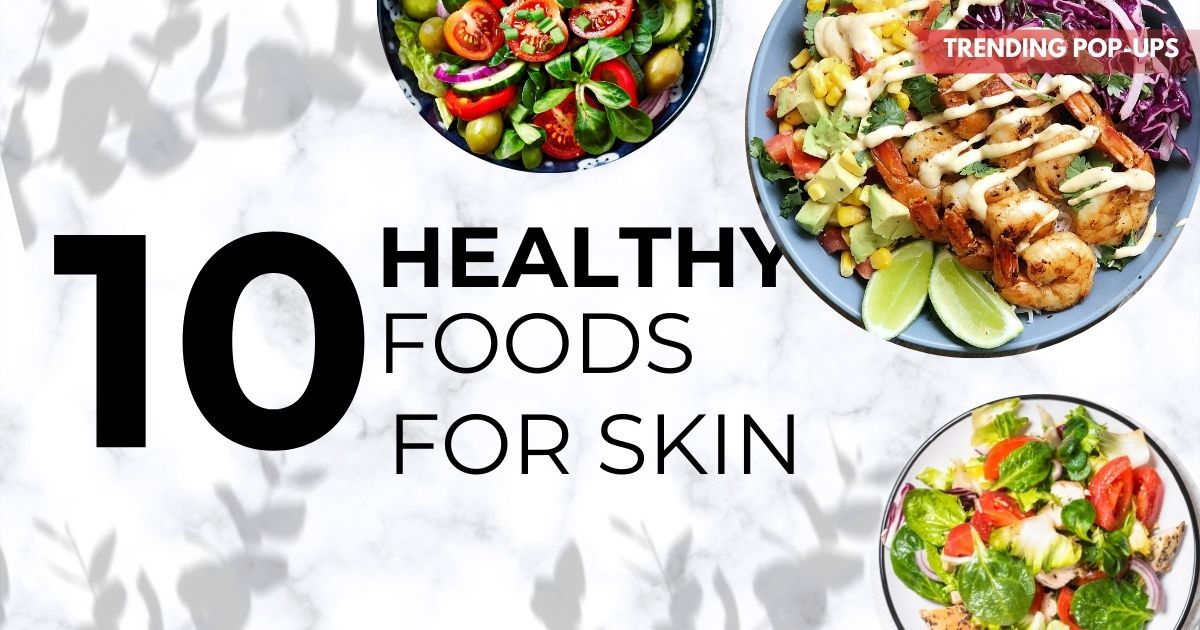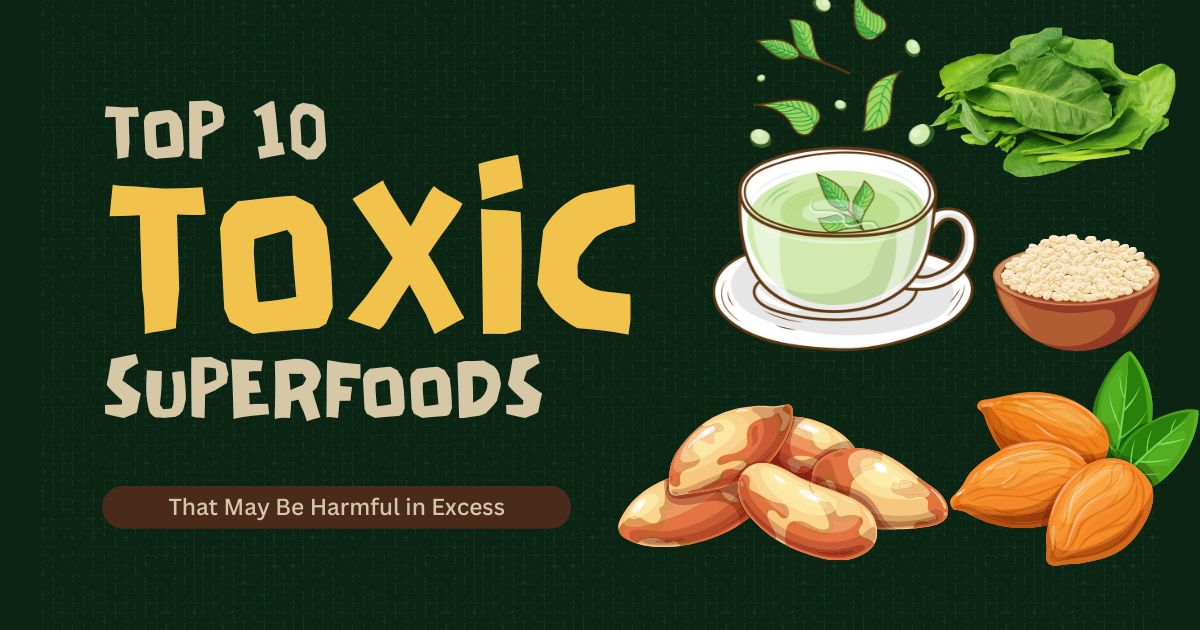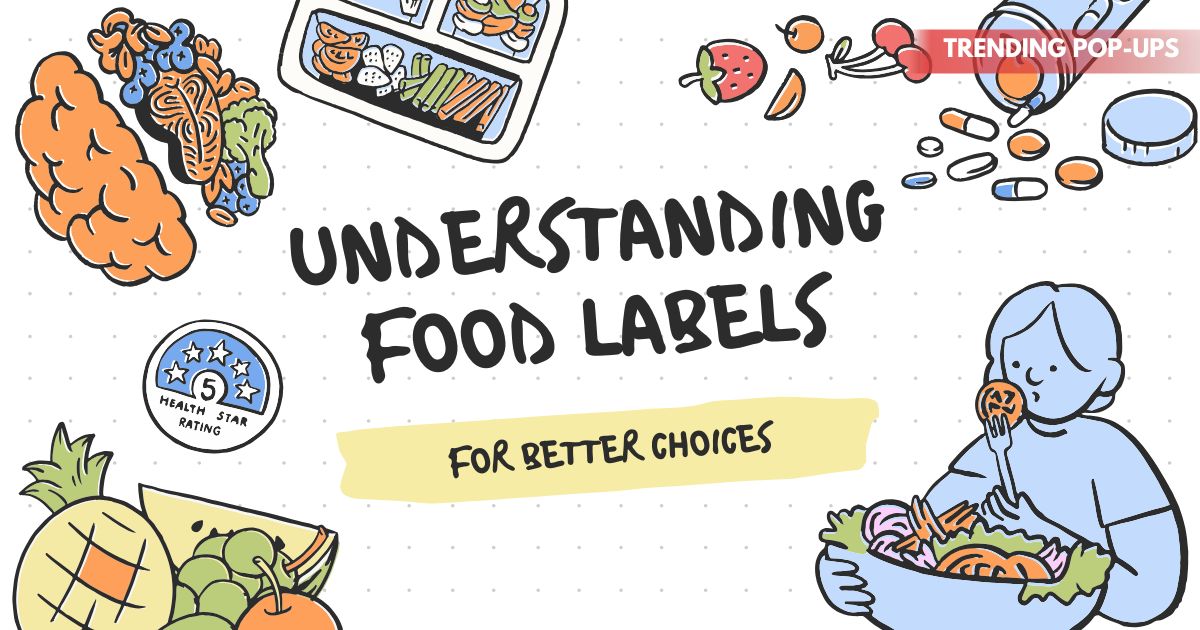Healthy, glowing skin is not just the result of skincare products—it begins from within. What you eat has a direct impact on your skin’s health, appearance, and ability to fight damage. A balanced diet rich in antioxidants, vitamins, healthy fats, and hydration can improve your skin’s elasticity, reduce signs of aging, and give you a natural glow.
In this article, we’ll explore the top 10 foods for healthy skin, supported by science, to help you nourish your body and achieve radiant skin naturally.
1. Fatty Fish
Fatty fish like salmon, mackerel, and sardines are excellent sources of omega-3 fatty acids. These healthy fats are essential for maintaining skin’s moisture, reducing inflammation, and protecting against dryness and acne.
Additionally, fatty fish provides vitamin E and zinc, both crucial for protecting the skin from free radicals and supporting cell repair. Regular consumption can help reduce redness, maintain a supple texture, and promote a healthy glow.
2. Avocados
Avocados are loaded with healthy monounsaturated fats that support hydration and improve skin elasticity. They’re also rich in vitamin C and vitamin E, which act as powerful antioxidants.
Vitamin C is vital for collagen production, the protein responsible for keeping skin firm and youthful, while vitamin E protects against oxidative damage from sun exposure and pollution. Adding avocado to your diet can help reduce wrinkles and keep your skin smooth.
3. Nuts and Seeds
Almonds, walnuts, chia seeds, and sunflower seeds are nutrient-dense foods that provide essential fatty acids, vitamin E, selenium, and zinc. These nutrients work together to protect skin from UV damage, reduce inflammation, and accelerate wound healing.
Walnuts, in particular, contain both omega-3 and omega-6 fatty acids, making them excellent for balancing oil production and preventing breakouts.
4. Sweet Potatoes
Sweet potatoes are a powerhouse of beta-carotene, a precursor of vitamin A. Beta-carotene acts as a natural sunblock, helping to protect skin cells from UV damage and reducing the risk of dryness and premature aging.
Consuming beta-carotene-rich foods like sweet potatoes, carrots, and pumpkins can give the skin a subtle, natural glow.
5. Berries
Blueberries, strawberries, raspberries, and blackberries are high in antioxidants such as vitamin C and polyphenols. These compounds fight oxidative stress caused by free radicals, reducing premature aging, wrinkles, and skin dullness.
Vitamin C also supports collagen production, improving firmness and reducing sagging. A daily serving of berries can help keep your skin vibrant and youthful.
6. Tomatoes
Tomatoes are rich in lycopene, an antioxidant that helps protect the skin from sun damage and oxidative stress. Lycopene has been linked to smoother skin texture and reduced risk of sunburn.
Pairing tomatoes with healthy fats like olive oil enhances lycopene absorption, making it more effective in promoting radiant skin.
7. Green Tea
Green tea is loaded with polyphenols, especially catechins, which have anti-inflammatory and antioxidant properties. Drinking green tea regularly can help reduce redness, fight acne-causing bacteria, and protect against UV damage.
Catechins also improve blood circulation, delivering more oxygen and nutrients to the skin, leaving it healthy and glowing.
8. Dark Chocolate
Dark chocolate (70% cocoa or higher) is not only a delicious treat but also a skin-friendly food. It contains flavonoids that improve skin hydration, thickness, and circulation.
Research shows that dark chocolate can enhance skin’s resistance to sun damage and improve texture. For best results, opt for unsweetened or minimally processed dark chocolate to avoid excess sugar intake.
9. Leafy Greens
Spinach, kale, and other leafy greens are packed with vitamins A, C, and K, along with iron and antioxidants. Vitamin A promotes cell turnover, reducing acne, while vitamin K supports healing and reduces dark circles under the eyes.
Regular consumption of leafy greens helps detoxify the body, keeping skin clear and refreshed.
10. Watermelon
Watermelon is a hydrating fruit composed of 92% water, making it excellent for maintaining skin hydration. It is rich in lycopene, vitamin C, and vitamin A, which all contribute to reducing puffiness, preventing acne, and keeping the skin radiant.
Consuming watermelon during hot weather helps maintain moisture balance and prevents dull, dehydrated skin.
Conclusion
Achieving healthy, glowing skin is not just about using topical creams—it’s about nourishing your body from within. The top 10 foods for healthy skin—including fatty fish, avocados, nuts, sweet potatoes, berries, tomatoes, green tea, dark chocolate, leafy greens, and watermelon—are all packed with skin-loving nutrients that promote elasticity, hydration, and protection against aging.
Incorporating these foods into your daily diet can make a significant difference in your skin health, leaving you with a radiant complexion naturally.
Also Read :Low-Carb Diet: What You Need to Know for Weight Loss and Health
FAQs
1. Can diet really improve skin health?
Yes. What you eat directly impacts skin hydration, elasticity, and aging. Nutrient-rich foods provide antioxidants and healthy fats that promote glowing skin.
2. How long does it take to see results from eating skin-healthy foods?
You may start noticing improvements in 4–8 weeks of consistent healthy eating, as skin cells regenerate roughly every 28 days.
3. Which foods should I avoid for healthy skin?
Limit processed foods, excess sugar, fried foods, and refined carbs, as they can trigger inflammation, acne, and premature aging.
4. Is drinking water important for glowing skin?
Absolutely. Staying hydrated helps maintain elasticity, flush out toxins, and prevent dryness. Aim for at least 8 glasses of water daily.
5. Can supplements replace skin-healthy foods?
While supplements may help, whole foods are the best source of skin nutrients because they provide a balance of vitamins, minerals, and antioxidants.



